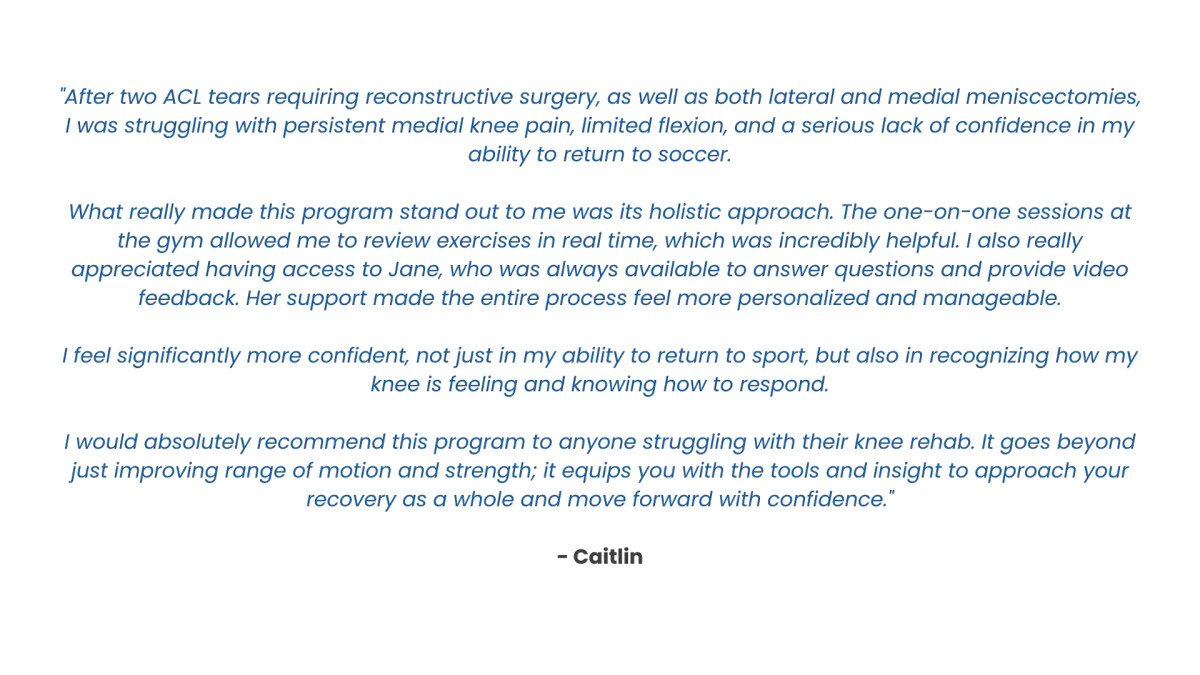Meet
Jane Eliasson
In a world full of so-called "experts", I'm glad you've arrived here. I'd be delighted to walk you through what a restorative approach to your knee (and entire body) looks like!

Who is Jane?
As a licensed physical therapist and functional nutrition & lifestyle practitioner, I’ve spent over three decades helping active people with injuries restore their strength and vitality—no matter their age or ability.
Whether it’s a seasoned athlete, a weekend warrior, or someone navigating the complexities of hormonal shifts, providing personalized care that supports lasting health and movement is what I do best.
In recent years, I’ve focused my attention on helping women in their perimenopause chapter of life particularly around the knee. This virtual program is called The Knee Rescue Formula (see more in services).
This phase of life brings hormonal fluctuations that can affect changes in tendons and ligaments, mood-mental health, weight gain, and strength—compounded by knee pain, this can feel overwhelming.
As a lucky mom to three great kids myself... Tackling these symptoms is critical to ensuring the best, future active you!
My approach is rooted in science, years of experience, and evidence-informed practice, integrating physical therapy through the lens of functional medicine.
Empowering people to find their way again. While we are fortunate for the procedures and pharma available these days when it is needed, there is potential risk, side-effects, and consequences. Best results for any desired outcome comes when we get your health balanced first, to re-frame what their future looks like!

Why an integrative approach beats the rest
Living in Stowe, Vermont which is a beautiful part of the country means one major thing.
Outdoor activities! (and lots of them)
Because of that, I’ve treated folks of all levels, abilities and ages including; professional, collegiate & high school athletes as well as the weekend Warriors!
My approach blends evidence-based physical therapy with a functional medicine lens to treat musculoskeletal issues holistically.
This means addressing not just mobility, strength, and balance, but also deeper factors like nutrient deficiencies, blood sugar regulation, sleep, hydration, hormones, and lifestyle—all of which impact inflammation and tissue health.
Over the years, my practice has evolved into a whole-person, individualized system that avoids a "siloed view" of care.
This comprehensive method helps patients return to the activities they love with better outcomes, often making surgery or medications unnecessary.






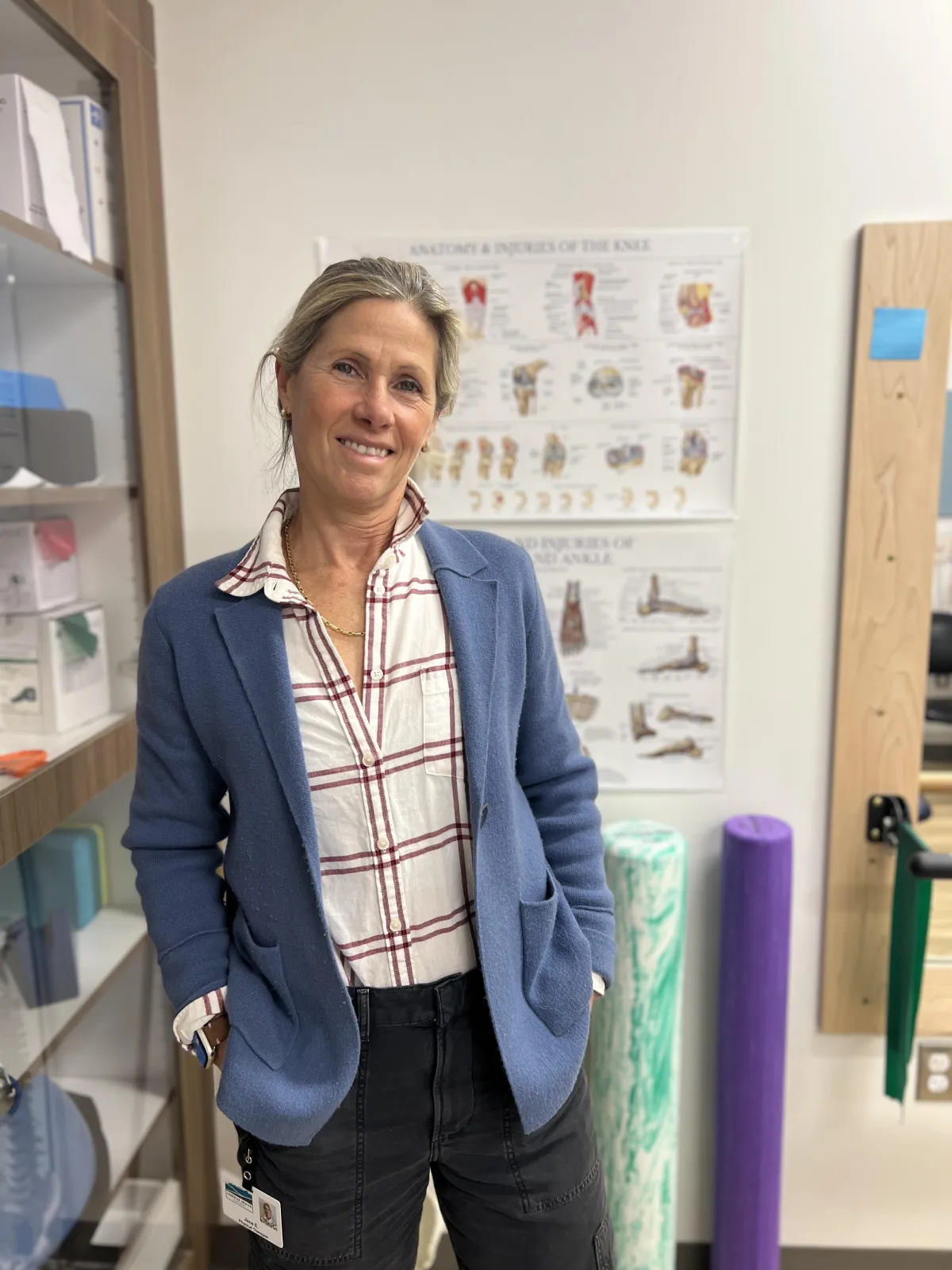




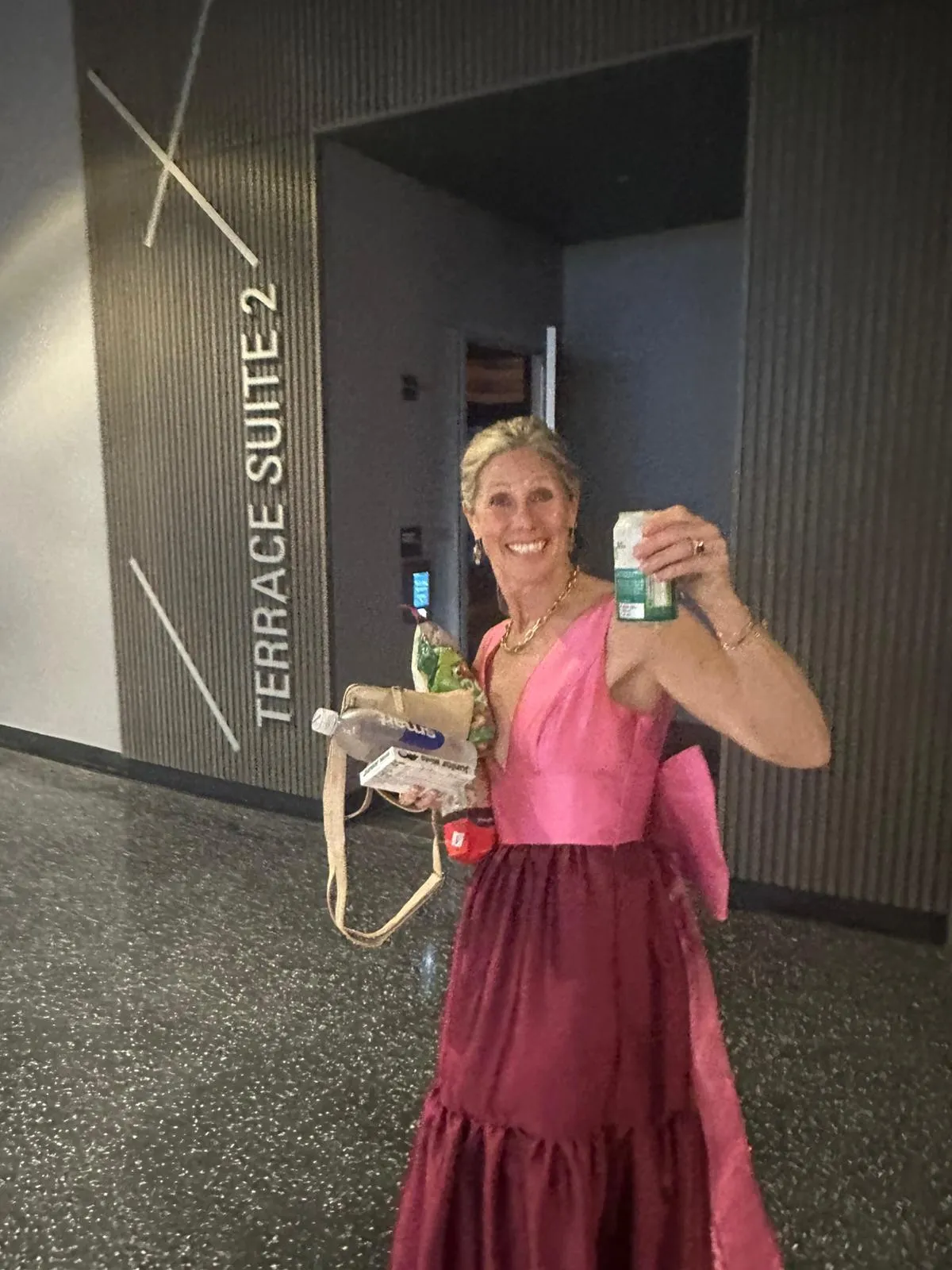
I'm here to help
If you're looking for a holistic, evidence-informed, and efficient approach to address your joint issues from the root cause...
And along the way also solve issues like weight gain, brain fog, mood swings, and hormonal imbalance...
Then I offer comprehensive 1:1 coaching packages to guide you back to health. With over 30 years of experience as a physical therapist and expertise in functional nutrition, we’ll work together to address the root causes of your pain.
This isn't just about fixing what hurts—it's about establishing habits and exercises that improve your entire body’s function and help prevent future issues.
In addition to movement analysis, I dive deep into your blood work to uncover any deficiencies that may lurking as well as other lifestyle factors that might be hindering your progress.
This hands-on model is designed to meet your unique needs and give you the tools and guidance to restore your function while maintaining long-term joint health and overall well-being.

What We Do
Functional Balance Method:

Knee Rescue Formula
Self-paced online coaching program with expert guidance
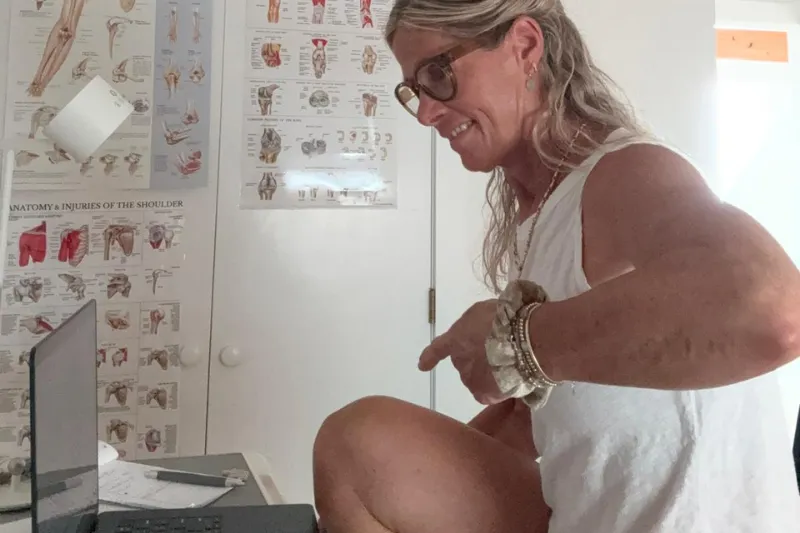
One-on-One Remote Coaching
1:1 support and community calls to personalize your path
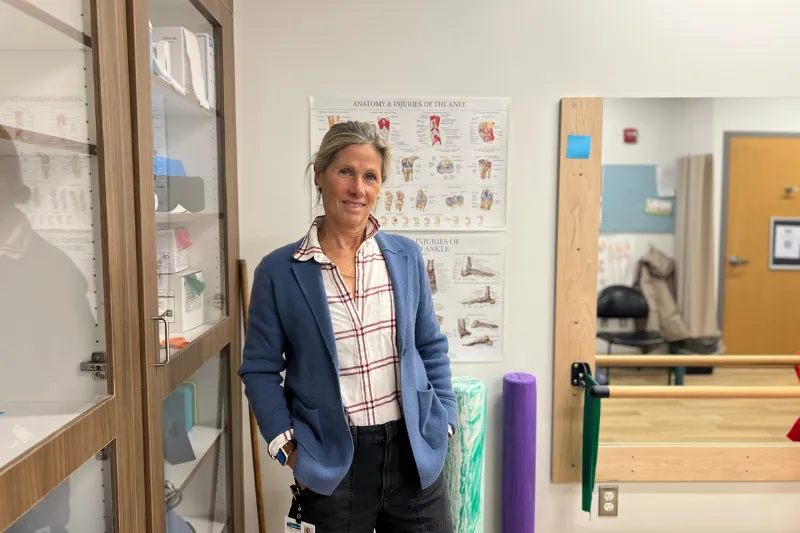
In-Office Physical Therapy
Hands-on clinic care to get you moving pain-free
No more bouncing between practitioners or band-aid treatments.
You deserve care that is as dynamic and intelligent as you are.
Testimonials
FAQ
Why do I keep having the same injury or pain over and over again?
Recurring pain or injury often comes from underlying movement patterns, muscle imbalances, or poor healing at the tissue or nervous system level. Even after the initial pain subsides, if the root cause—like poor joint control, weak stabilizers, or inflammation—isn’t addressed, the cycle repeats. Our approach blends movement retraining with nervous system input, nutrition, and lifestyle strategies to break the pattern and promote lasting healing.
How long does it take to recover from a musculoskeletal issue?
It depends on many factors—how long you’ve had the issue, how severe it is, your age, sleep quality, stress, nutrition, and even hormone status. Some people feel better within a few weeks. Others, especially with chronic issues, may need a few months. Real recovery is possible when we treat the body as a system, not just a joint.
What’s the difference between strengthening and re-training my movement?
Strengthening focuses on building muscle power and size. But if your body isn't using the right muscles at the right time, you’re strengthening a compensation pattern. Movement retraining restores coordination between your brain, joints, and muscles—so the right muscles activate when they should. It’s the foundation of true stability and long-term strength.
Can nutrition or lifestyle really impact my joint or muscle pain?
Yes—more than most people realize. Poor sleep, chronic stress, blood sugar imbalance, dehydration, or a pro-inflammatory diet can delay healing and increase sensitivity to pain. We use functional medicine principles to support recovery from the inside out—because a well-fed, well-rested body heals faster and holds onto results longer.
Is it safe to exercise with joint pain or instability?
Yes—but only if it’s the right kind of movement. Certain exercises can help reduce pain by improving blood flow, neuromuscular control, and joint nutrition. Others may make symptoms worse if the mechanics are off. That’s why our programs focus on restoring control first, then gradually progressing to strength and performance.
Why hasn't physical therapy worked for me in the past?
Many traditional approaches focus only on the local area of pain and may miss contributing factors like poor movement patterns, systemic inflammation, or lifestyle stressors that block healing. Our integrative approach combines orthopedic PT with a functional lens—looking at the full picture of why healing isn’t happening, and guiding you through a personalized path that addresses both body mechanics and whole-body support.
How do hormones affect my joint or muscle pain?
Hormones like estrogen, cortisol, and insulin play a major role in tissue repair, inflammation, and muscle recovery. During perimenopause, many women experience joint stiffness, muscle loss, or new injuries due to shifting hormone levels. That’s why we integrate hormone-supportive strategies into the recovery plan—so you’re not working against your biology, but with it.
Why does it seem harder for me to lose weight than anyone else?
Weight loss resistance is often more than just "eating right" and exercising. Factors like chronic inflammation, hormonal imbalance, high stress, sleep disruption, and metabolic shifts during midlife can make fat loss more difficult. We address these root causes through a whole-body approach to restore balance and improve metabolism naturally.
Is alcohol really that bad for me? How much is too much at this time?
Alcohol can interfere with sleep, hormone regulation, liver function, and inflammation—all of which are critical to healing and weight balance. Occasional use may be fine for some, but regular or heavy drinking can stall progress. For midlife recovery, many benefit from cutting back to 1–2 drinks per week or avoiding it altogether.
What about sugar? Everything on social media seems to conflict. Is it really that bad?
Not all sugar is created equal—but in general, excess added sugars contribute to inflammation, hormonal imbalances, and blood sugar swings that affect pain and mood. You don’t need to be perfect, but being mindful of how much and how often you consume sugary foods can make a big difference in your overall health.
Could it be that my weight-gain, knee issues, and mood-swings are all interconnected?
Yes—and that’s exactly why we take an integrative approach. Hormonal shifts, inflammation, gut health, stress, and movement all affect each other. What may feel like separate issues is often one interconnected pattern—and by supporting your system as a whole, we help restore balance across the board.
Curious to learn more?
I put together an in-depth 30 minute masterclass about THE KNEE RESCUE FORMULA, along with some remarkable transformations.
Click the button below to register for free today!
FREE RESOURCE:
5 Shifts to End Knee Pain and Regain Balance



